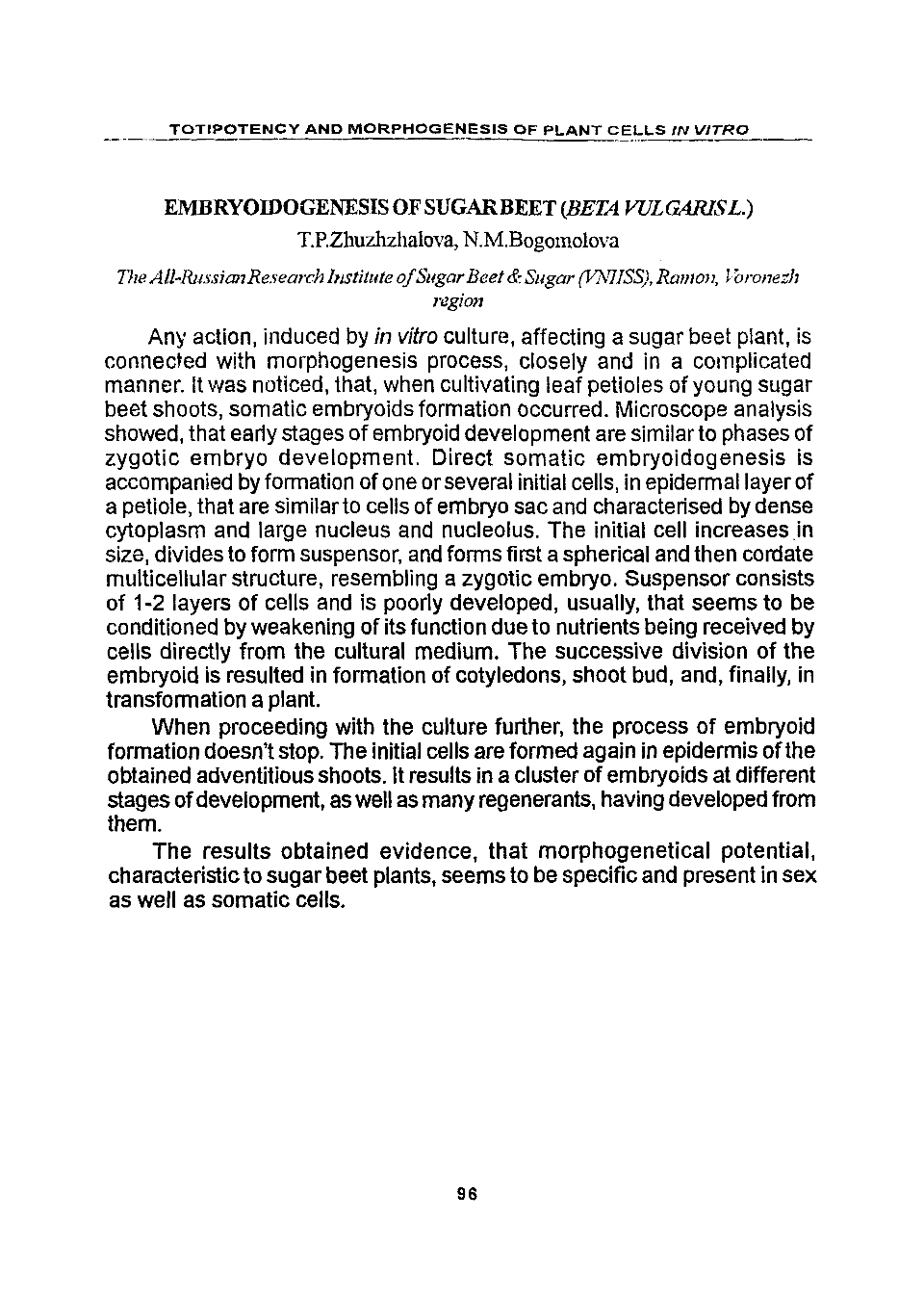

ТОТ1 P O T E N C Y A N D M O R P H O G E N E S IS OF P L A N T C E L L S
IN V IT R O
EMBRYOIDOGENESISOFSUGARBEET(
BETA VULGARIS L..)
T.P.Zhuzhzhalova, N.M.Bogomolova
The
All-RussianResearch
Institute
ofSugar
Beet
&Sugar
(VNIISS),
Ramon,
Voronezh
region
Any action, induced by
in vitro
culture, affecting a sugar beet plant, is
connected with morphogenesis process, closely and in a complicated
manner. It was noticed, that, when cultivating leaf petioles of young sugar
beet shoots, somatic embryoids formation occurred. Microscope analysis
showed, that early stages of embryoid development are similar to phases of
zygotic embryo development. D irect somatic embryoidogenesis is
accompanied by formation of one orseveral initial cells, in epidermal layer of
a petiole, that are similarto cells of embryo sac and characterised by dense
cytoplasm and large nucleus and nucleolus. The initial cell increases in
size, divides to form suspensor, and forms first a spherical and then cordate
multicellular structure, resembling a zygotic embryo. Suspensor consists
of 1-2 layers of cells and is poorly developed, usually, that seems to be
conditioned by weakening of its function due to nutrients being received by
cells directly from the cultural medium. The successive division of the
embryoid is resulted in formation of cotyledons, shoot bud, and, finally, in
transformation a plant.
When proceeding with the culture further, the process of embryoid
formation doesn’t stop. The initial cells are formed again in epidermis of the
obtained adventitious shoots. It results in a cluster of embryoids at different
stages of development, as well as many regenerants, having developed from
them.
The results obtained evidence, that morphogenetical potential,
characteristic to sugar beet plants, seems to be specific and present in sex
as well as somatic cells.
96
Научная электронная библиотека ЦНСХБ









